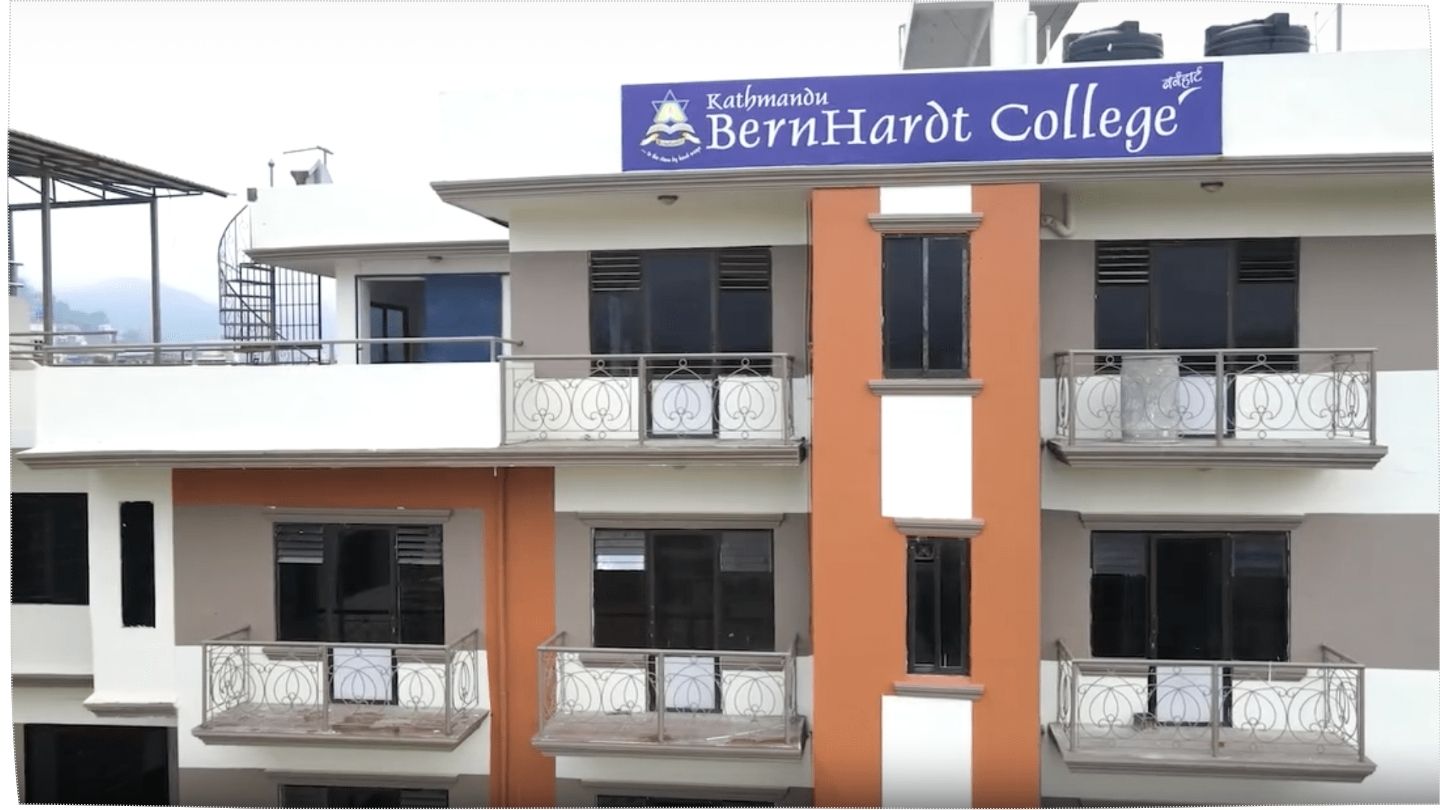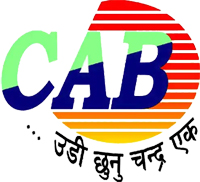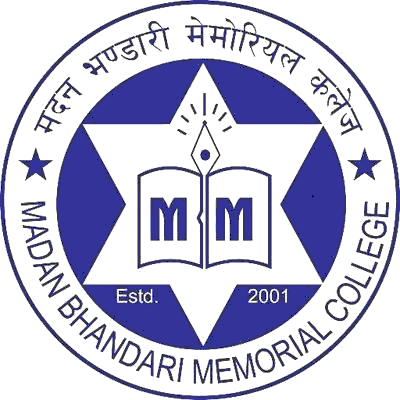Overview
BSc CSIT at Kathmandu BernHardt College, Bafal, Kathmandu
BSc CSIT at Kathmandu BernHardt College (KBC), Bafal, Kathmandu, is a Tribhuvan University (TU) program that blends core computer science with practical information technology.
KBC runs this course under TU’s Institute of Science and Technology (IoST) structure, which sets the semester plan, credit load, and entrance process.
KBC situates the program in a compact, accessible campus on Ring Road. Teaching rooms have projection, and labs support the weekly coding and systems workload. A seminar hall, library, rooftop cafeteria, elevators, open areas, and basement parking back daily study. Contact details and location appear in the prospectus for verification.

Highlights
-
Affiliation: Tribhuvan University (IoST)
-
Duration and load: Four years, eight semesters, 126 credits (TU model)
-
Campus supports: Computer/digital labs, seminar hall, library, cafeteria, elevators, open areas, basement parking
-
College address: Bafal, Ring Road, Kathmandu; 01-5237330 / 01-5237361; ktmbernhardt@kbc.edu.np
Curriculum Details
TU’s BSc CSIT maps foundation theory to hands-on components. Core areas include programming, data structures, discrete mathematics, operating systems, database systems, computer networks, software engineering, simulation and modeling, graphics, AI, and web technologies. IoST confirms the 126-credit structure and the balance of core and elective courses.
Electives at KBC reflect TU’s list and may include IPv6 networking, distributed networking, game technology, cloud concepts, GIS, decision support, mobile app development, real-time systems, network/system administration, embedded programming, and selected management links. Final-year slots include Advanced Database, Internship, and two or more electives.
Objectives
-
Build a strong base in computer science concepts and practical IT.
-
Develop habits of precise coding, testing, documentation, and short research write-ups.
-
Encourage ethical, responsible use of technology in local contexts.
These aims mirror IoST’s national program objective while reflecting KBC’s lab-first routine and frequent assessments.
Scope
Graduates serve in software development, systems analysis, database administration, network administration, system administration, and IT officer roles across banks, software firms, telecom support, service companies, and public bodies. These pathways appear in KBC’s program notes and align with typical TU outcomes.
Learning Outcomes
-
Write clear, maintainable code in multiple paradigms; apply algorithms and data structures to real tasks.
-
Configure and troubleshoot core systems (OS, DBMS, networking) with basic security awareness.
-
Model, test, and present a project or capstone with versioned artifacts and concise reports.
-
Communicate decisions and trade-offs through short write-ups and viva.
Skill Development Modules
KBC pairs theory with structured practice:
-
Programming labs: Weekly coding, debugging, and small demos.
-
Systems sessions: Networking basics, shell practice, DB queries, and backup routines.
-
Project cycles: Requirement note → design sketch → build → test → short presentation.
-
Study supports: Quizzes, unit tests, and prompt feedback to keep a steady pace.
Teaching Methodology
Faculty run projector-guided lectures, lab blocks, and short assessments. Students join seminars and research presentations and, when feasible, visit events or organizations tied to computing. Career counseling helps with internship search and interview prep. The approach is consistent with KBC’s stated routine: frequent assessments, prompt feedback, excursions, and counseling.
Admission Requirements
-
Minimum qualification: +2 Science (or equivalent) with Mathematics as per TU IoST rules.
-
Entrance exam: IoST BSc CSIT Entrance, online form and notices published on TU IoST portals.
-
KBC prospectus entry rule (summary): Twelve years of schooling in the science stream or equivalent, at least second division, and IoST entrance pass. Applicants can confirm current grading thresholds in the latest IoST notice.
Admission timeline at KBC: Academic operations follow TU’s calendar; applicants should track the IoST entrance notice and KBC’s counseling window for the session.
Career Opportunities
-
Software developer/programmer
-
Systems analyst
-
Database/network administrator
-
System administrator / IT officer
Roles depend on project portfolio, internships, and personal practice. KBC lists these pathways in course information.
Scholarships and Financial Aid
The uploaded materials do not fix scholarship percentages. Students should request the current written policy on merit criteria, need-sensitive support, and renewal rules during counseling.
Why Choose This Course?
-
TU-standard structure (126 credits, eight semesters) ensures national recognition.
-
KBC lab and assessment rhythm supports weekly practice and clear checkpoints.
-
Campus logistics—library, seminar hall, cafeteria, elevators, open areas, and parking—support daily study.
Conclusion
Students who prefer consistent pacing, visible milestones, and regular feedback will find this structure practical. Parents and decision-makers can verify rules through TU IoST notices and the KBC office before finalizing an application.
FAQ
Is BSc CSIT at KBC under TU IoST?
Yes. The program follows TU IoST’s credit plan and entrance system.
How many credits are required?
126 credits across eight semesters.
Does KBC run internships or projects?
Yes. Final stages include internship and advanced courses; KBC schedules assessments and project presentations.
Where is the campus?
Bafal, Ring Road, Kathmandu; 01-5237330 / 01-5237361; ktmbernhardt@kbc.edu.np.
How do I apply?
Fill the IoST BSc CSIT entrance form per the current notice and contact KBC for counseling and document submission.























